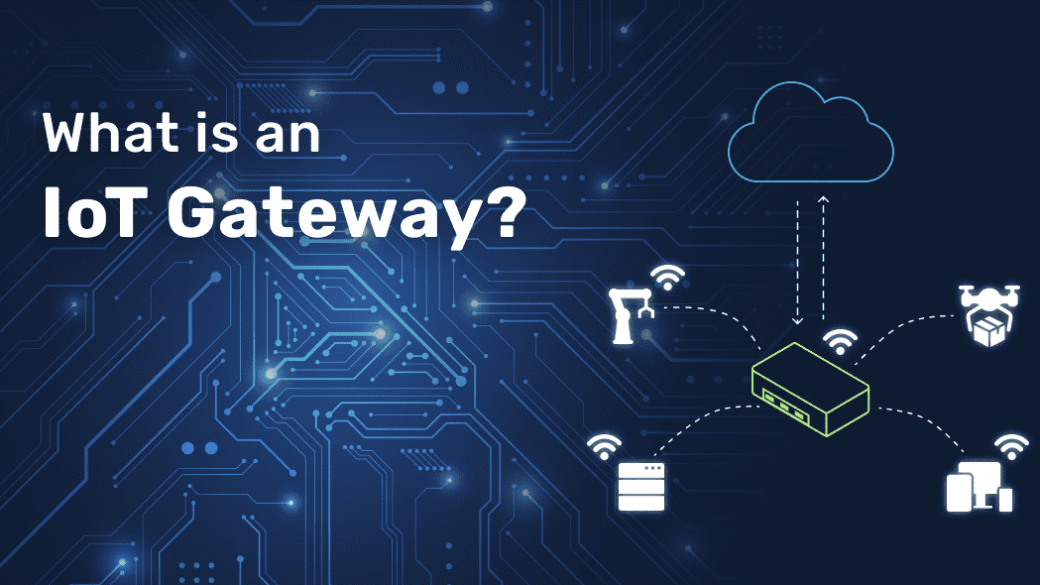Over the past few years, the Internet of Things has grown rapidly. An IoT network is a collection of physical objects, vehicles, appliances, and other objects that can exchange data via sensors, software, and network connections.
There has already been a tremendous impact of the Internet of Things on many industries, and we can expect this impact to increase even further in the future. One of its key components is the IoT Gateway, which acts as a bridge between Internet of Things devices and the cloud. Let’s discuss the future of the Internet of Things gateway and its potential impact on businesses.
IoT Gateways – What do they do?
IoT Gateways are hardware devices that connect Internet of Things devices to the cloud. They are responsible for data collection, processing, and transmission from the Internet of Things devices to the cloud. In addition, they provide security, edge computing, and device management capabilities. A cloud or on-premises deployment is possible. Zigbee, Z-Wave, Wi-Fi, Bluetooth, and cellular protocols are supported by the Internet of Things Gateways.
What does the future hold for IoT Gateways?
Future prospects for IoT Gateways are bright. Here are some trends that will shape its future:
1. Edge computing
Edge computing involves bringing computation and data storage closer to devices rather than sending them to the cloud. By providing local processing, data filtering, and analysis capabilities, it plays an important role in edge computing. The result will be a reduction in latency, bandwidth usage, and dependency on the cloud.
- Artificial intelligence
AI refers to the capability of machines to perform tasks that normally require human intelligence. With the Internet of Things, AI is becoming increasingly important, and the gateway will be the key enabler. Local AI algorithms can run on the Internet of Things Gateway to enable real-time maintenance, anomaly detection, and decision-making in real-time.
- 5G
‘5G’ stands for fifth-generation wireless communication that promises high speed, low latency, and massive connectivity. Internet of Things devices will be able to transmit and receive large amounts of data quickly and efficiently with 5G. Providing security, data processing, and network management, the Internet of Things Gateway will be the crucial link between 5G and Internet of Things devices.
- Standardization
The scalability, interoperability, and security of the Internet of Things are dependent on standardization. In order to achieve standardization, the IoT Gateway supports a wide range of protocols, including MQTT, CoAP, and AMQP. As well as standard security protocols like TLS and DTLS, the gateway will support the Internet of Things.
In shaping the next generation of Internet of Things applications and services, the Internet of Things Gateway will continue to play a pivotal role. Now is the time for businesses to realize the importance of this technology and incorporate it into their operations.
Potential Impact of IoT Gateway on Businesses
Industry and business transformation can be achieved through IoT gateways. Here are some of the potential business impacts of IoT gateways:
1. Cost reduction
Through the IoT Gateway, data can be collected, processed, and transmitted efficiently, helping businesses reduce costs. It can also enable predictive maintenance, which reduces downtime and repair costs.
- Improved efficiency
By enabling real-time monitoring and control of their operations, the IoT Gateway helps businesses improve their efficiency. In addition, it enables automation, reducing manual labor and increasing productivity.
- Enhanced customer experience
Business can enhance their customer experience by providing real-time insights and personalized services through the IoT Gateway. Retail stores, for instance, can track customer behavior and provide personalized offers and recommendations using Internet of Things sensors.
- New business models
With an IoT Gateway, more innovative business models can be developed. As a result of the IoT gateway, customers can track their usage and bill them accordingly, making it a more flexible and cost-effective option for them.
Take an instance – manufacturers may offer “pay-per-use” services instead of selling their goods outright.
- Competitive advantage
As businesses adopt IoT Gateway technology, they can improve their operations, reduce costs, and provide better customer service. Early adoption of this technology can give them an edge over their competitors and position them as leaders in their industries.
- Security
An IoT Gateway provides encryption, access control, and device management features, making it a critical component of the Internet of Things security. By providing security capabilities to businesses, IoT Gateway can help them protect their Internet of Things devices and data from cyber threats.
- Data Analytics
Data can be collected from Internet of Things devices and processed by the gateway, enabling businesses to analyze customer behavior, track trends, and uncover growth opportunities. These valuable insights enable them to make informed decisions.
The IoT gateway plays a crucial role in the Internet of Things ecosystem, and its future looks bright. As the Internet of Things continues to grow, businesses that leverage IoT Gateway technology can position themselves for success and growth in the future.


